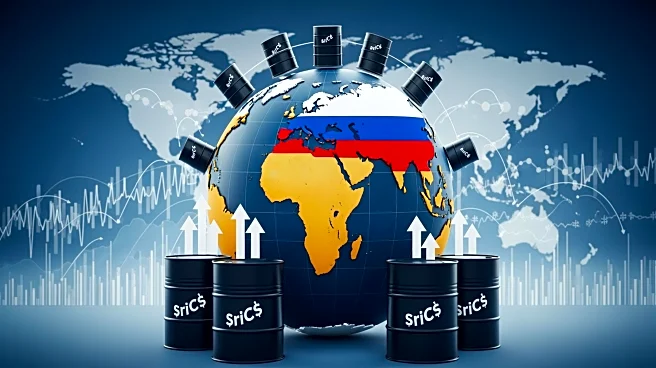What's Happening?
Oil prices have increased following the latest U.S. sanctions imposed on Russian oil producers. Brent crude futures rose by $1.14 to $65.2 a barrel, while U.S. West Texas Intermediate crude increased by $1.03
to $61.16 a barrel. The sanctions have affected product exports, leading to a shift in heating oil and gasoline markets. Middle Eastern countries like Saudi Arabia, Iraq, and Kuwait are set to increase crude oil supplies to India as Indian refiners seek alternatives to Russian oil. The market is also influenced by the potential end of the U.S. government shutdown, which could boost demand expectations.
Why It's Important?
The sanctions on Russian oil producers are significant as they impact global oil markets, particularly crude and refined fuel markets. The restrictions on fuel exports are supporting oil prices despite concerns of oversupply. This situation highlights the geopolitical tensions affecting energy markets and the strategic moves by countries to secure alternative energy sources. The sanctions could lead to increased reliance on Middle Eastern oil, altering trade dynamics and potentially affecting global energy security.
What's Next?
OPEC+ has agreed to increase output targets, but a pause in increases is expected in the first quarter of next year. The group may reverse voluntary production cuts, potentially adding an extra 1 million barrels per day in the coming year. The oil market faces oversupply challenges, which could keep prices under pressure. The resolution of the U.S. government shutdown could further influence demand and market stability.










